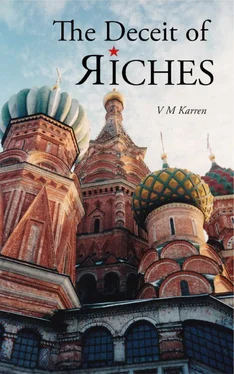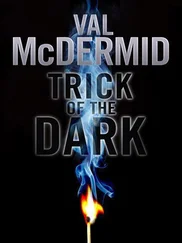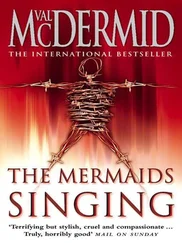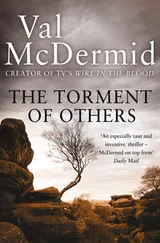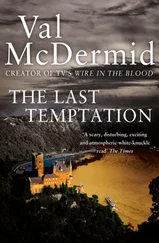The library was everything that the Dean said it would be; new, sleek, bright and had a wall of CDROMs filled with data from journals, periodicals, magazines and Russian government reports covering at least the last ten years. The computers weren’t state of the art but they were definitely the best collection of computing power in the university.
With Strelyneko looking over my shoulder I entered a few search words; privatization, economic reform, private enterprises, finance, and finally the name of the Moscow journalist who Vitaly told me about: Bolshakov. Tens of references to recent articles stored on CDROMs from an international archive of dozens of magazines and journals filled the screen. I commented to Strelyenko that it would be difficult to get me to ever leave once I started a serious research topic. He slapped me on the back in a manly way to show his pleasure of having another political junky come to study under his tutorage, even if I was a foreigner.
Strelyenko introduced me to the head librarian, Olga. She took my student card and copied my name and student number into a ledger and returned it to me together with hand written paper with my user name and password and a nervous smile.
Stelyenko and I stood outside waiting for the trolleybus in snow and cold. We spoke in English. He smoked a cigarette with indifference.
“What is your interest in the economic reforms, Pyotr?” Strenlyenko asked with smoke coming out his nostrils, “Are you hoping to invest?”
“No, I am very interested to watch how a country rebuilds itself,” I replied sincerely. “I hope that Yeltsin learns from what the Soviet system did wrong and makes good changes. I think that privatization is a great step forward!”
“Boris Yeltsin was only good in opposition. He is not a ruler. He was a good Russian conscience but since he took power, he only blew up the parliament with his tanks and let the criminals run Moscow. So, I would say that he has been slow to learn from the mistakes of the Soviet system. He needs to go back to the opposition and let real Russians run Russia,” was Strelyenko’s commentary to my idealism.
“Yeltsin is not a real Russian?” I asked curious to understand his point of view.
“No, he is not. He’s from Siberia, probably descended from Imperial period criminals,” he sneered, ‘We need to have the true Russian bloodline ruling Russia again, looking out for both Russia and her children!”
“Are you a Tsarist then?” I asked with certainty of his answer.
“Yes, my position is that the Bolsheviks’ actions were fully unconstitutional and Kerensky should have been shot for treason for deposing the Tsar,” he said politely, as if he was in one of the fashionable parlors of St. Petersburg discussing politics in 1917.
“I have read some articles that say the same thing. Revolutions though are always unconstitutional, by definition, so it’s a weak argument to use the definition of the word to brand it as criminal.” I parried his swipe at the modern situation.
“True, but it still didn’t make it legal,” he shot back.
“Did the Tsar abdicate or was he truly under duress?” I asked in my advance.
“It is not legal nor moral for a Tsar to abdicate his God given duty. Just like God says in the Bible, “what God has put together let no man put asunder.” Just because Kerensky said it was legal for the Tsar to abdicate makes it about as acceptable for man and woman to divorce. Man’s laws cannot override God’s words!” he said well rehearsed.
“Are you a believing Orthodox man then?” I jabbed at him.
“Every real Russian man is,” he smiled and took a drag from his cigarette.
“What is your opinion of Mr. Zhilenskiy in the modern political arena?” I asked slightly changing the subject.
“Still too soon to know. He has conviction. I just don’t know yet where it will lead to. It could go one of two ways: one, restoring a strong Russian nobility and the virtues that go with it or two, ethnic cleansing due to lack of virtues. He’s a loose cannon that could help win the battle or burn down our own house.” He answered while he exhaled tobacco smoke into the still frozen afternoon air. “We can talk about it further next week during our first session, yes?”
The walk between the two faculties where I studied was about three kilometers. When history lectures let out on Wednesday morning at lunch time at Minin Square, the walk up the sloping pedestrian district, Bolshaya Pokrovka, was always a fun stroll past shops, flea markets, and cafés. The city’s most interesting and historic architecture is found along this walking street. There is a historic, very Teutonic looking bank, that looks like it’s straight out of Bavaria, made of gray stone and rounded turrets. There is a classical drama theatre in happy yellow with a small square spread out under the entrance staircase, an old mansion of Boyars from centuries earlier brightly painted in the St Petersburg neo-classical style. All this history seamlessly blended with the food busses and currency exchange kiosks to create a relaxed aura of leisurely doing one’s daily chores and shopping.
It was here on Bolshaya Pokrovka that I discovered the bread called lavash done in the Georgian style, round and thick. This bread would become my staple of existence in a world where most meat was questionable and the cheeses were less than tempting. One bought this heavenly bread, literally, from a hole in the wall on “Pokrovka.” One knocks. The hatch is slid open. One presents three one-hundred ruble notes, one gets three round discs of warm lavash. No words. No faces. Just soft, warm delicious bread at lunch time for a bargain price. The only drawback was the line at lunch time was long and it wasn’t a well-kept secret.
At the top of Pakrovka stands a monolithic square gray stone building hewn by muscled socialist-realist sculptors: The Post, Telephone and Telegraph building, or the PTT as the locals called it. Here, those without telephones in their homes could reserve a phone booth on a given day at a given hour to make long distance telephone calls all over the world. One would only need to write down the number to be called and hand it to an operator. An operator would then usher the caller to a sound proof numbered booth with a big cushy chair to sit in while talking. After a few minutes, the telephone would ring— and through the wonders of modern technology, my mother would always be on the other end of the line in America. It made making a telephone call into a lavish production similar to going to an opera or an old-time cinema where folks would dress in their Sunday best to watch a “movie.” All that was missing was warm cocoa with marshmallows and an admission charge.
It is from this gray stone building that the local agents of the Federal Security Bureau (FSB) spy on the residents and visitors of the city and listen in comfort to all the international phone calls coming into and going out from the city. It was an unspoken rule in Russia that conversations over the telephone were limited to the weather and one’s health and not much more. My mother just needed a proof of life by hearing my voice once a month. The other details I wrote in letters.
One afternoon after a group literature lecture for the foreign students with Professor Dashkova, I was introduced to Hans from East Germany. An economics student from Leipzig, he spoke English very well but was struggling to be understood in Russian due to his thick German accent. He was a tough looking fellow, broad, muscular and fit with a nearly bald head with a fuzzy shadow of hair which he kept almost shaved.
“Hans, why haven’t we met in the dormitories yet?” I asked him curiously.
“Oh, I don’t stay in the student rooms. I have my own apartment in the old city,” he revealed.
Читать дальше
